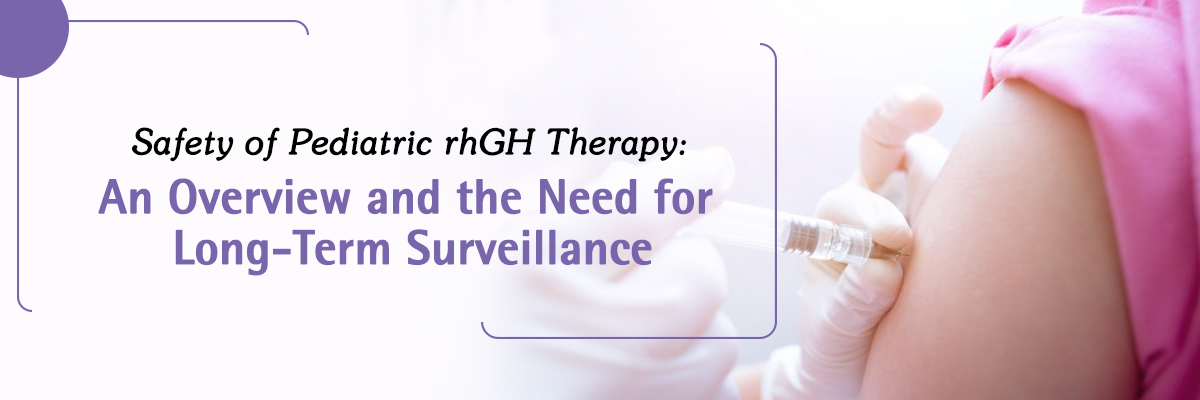
 IJCP Editorial Team
IJCP Editorial Team
Safety of Pediatric rhGH Therapy: An Overview and the Need for Long-Term Surveillance
Growth hormone (GH) therapy is utilized since 1958 and has shown an excellent safety profile in the short term. However, its potential long-term side effects cannot be neglected.
In the past years, several observational studies in different cohorts of young adult patients treated with GH during childhood have produced inconsistent results. They mainly discussed three major potential risks associated with GH therapy, i.e. cancer, cardio and cerebrovascular diseases and diabetes.
The available evidence of cancer, cardio-cerebrovascular and diabetes risk in young adulthood, associated with rhGH therapy in childhood, can be explained as-
Cancer risk-
Low-risk group (IGHD, ISS and SGA) are not associated with increased risk, however, an increased risk of bone tumors is explained in the French SAGHE cohort.
Cardio-cerebrovascular risk
There is a potential increased risk, probably in union with other risk factors like family history, environment, lifestyle, ethnicity, comorbidities and, possibly, female gender.
Type 2 Diabetes risk
There is a potential increased risk in presence of other risk factors like obesity, family history, sedentary lifestyle, and comorbidities.
Thus the patients with Pediatric rhGH Therapy should be monitored for these potential complications in the long run.
SOURCE= Cianfarani S. Safety of Pediatric rhGH Therapy: An Overview and the Need for Long-Term Surveillance. Front Endocrinol (Lausanne). 2021;12:811846. Published 2021 Dec 24. doi:10.3389/fendo.2021.811846

IJCP Editorial Team
Comprising seasoned professionals and experts from the medical field, the IJCP editorial team is dedicated to delivering timely and accurate content and thriving to provide attention-grabbing information for the readers. What sets them apart are their diverse expertise, spanning academia, research, and clinical practice, and their dedication to upholding the highest standards of quality and integrity. With a wealth of experience and a commitment to excellence, the IJCP editorial team strives to provide valuable perspectives, the latest trends, and in-depth analyses across various medical domains, all in a way that keeps you interested and engaged.





















Please login to comment on this article